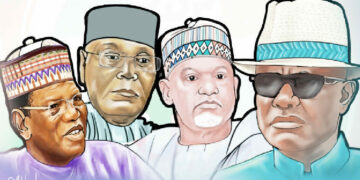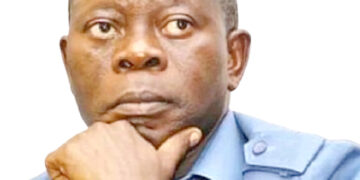When the United Nations was founded in 1945, the world was reeling from two devastating world wars that had left tens of millions dead and entire nations in ruins. The UN’s very creation was a bold declaration that humanity could learn from history, that nations could come together to prevent another global catastrophe.
Eighty years on, that promise remains the cornerstone of the UN’s work. The fact that there has not been another world war is itself a testament to the value of dialogue, mediation, and collective security. UN peacekeeping missions from Liberia to Cambodia, Sierra Leone to East Timor, have helped end wars, rebuild fractured societies, and give communities a chance at peace.
However, this anniversary arrives both as a triumphal milestone and a stark reminder of how fragile peace remains. Violent conflict has returned on multiple fronts from Ukraine to the Middle East and across the Sahel. Rivalries between great powers paralyse the very institutions meant to mediate disputes, while non-state conflicts and proxy wars deepen instability. The toll is devastating, millions displaced, civilians caught in crossfire, and fragile economies collapsing under the weight of violence. The humanitarian system, already overstretched, struggles to respond to multiple crises simultaneously.
Despite these challenges, the UN’s enduring relevance lies in its vision of collective action and shared humanity. No other institution brings together 193 nations to negotiate peace, set global norms, and commit to common goals. No other body commands the legitimacy to coordinate on issues that transcend borders, from pandemics to disarmament, from refugee protection to digital governance.
For us in Nigeria, the UN’s story is also one of pride and representation. Her Excellency, Amina J. Mohammed, a distinguished Nigerian diplomat, currently serves as the UN Deputy Secretary-General, the highest-ranking African woman in the organisation’s history. Before joining the UN, she was Nigeria’s Senior Special Assistant to the President on MDGs, Minister of Environment and a key architect of the 2030 Agenda for Sustainable Development.
Advancing Human Rights and Development
Central to setting the standards that underpin human dignity worldwide, the Universal Declaration of Human Rights (1948) was a groundbreaking milestone, affirming that every person, regardless of race, religion, or gender, has inalienable rights. Since then, UN conventions on women’s rights (CEDAW), children and persons with disabilities have shaped national laws and policies globally.
Institutions such as the UN Human Rights Council (UNHCR) continue to spotlight abuses, protect the displaced, and push governments towards accountability. The UN Women, established in 2010, has amplified women’s voices and coordinated global efforts toward gender equality.
These mechanisms are far from perfect, but they have provided the language, tools, and moral authority for civil society and ordinary citizens to demand better from their governments. Perhaps no achievement is more visible than the UN’s role in global development. From the MDGs to today’s SDGs, the UN has given the world a shared vision for tackling poverty, hunger, and inequality.
The results are tangible. Since 1990, extreme poverty has been cut by more than half. Millions more children now attend school, global child mortality has dropped significantly, and access to clean water and electricity has expanded dramatically. The UN Development Programme (UNDP), World Food Programme (WFP), and UNICEF have been instrumental in driving these changes, working together with national governments and communities.
The WHO has also been at the forefront of historic milestones: eradicating smallpox, reducing polio to the brink of extinction, and mobilising unprecedented cooperation during the COVID-19 pandemic. These victories show what is possible when nations pool their resources and knowledge under a shared umbrella.
The UN has been the arena where humanity has wrestled with the defining challenge of our era: climate change. Through the Intergovernmental Panel on Climate Change (IPCC) and global agreements like the Paris Accord (2015), the UN has elevated climate science, mobilised global consensus, and kept the issue at the top of political agendas.
On the humanitarian front, the UN remains the world’s first responder. The WFP feeds millions in crisis zones; UNICEF vaccinates children in hard-to-reach areas; UNHCR shelters refugees fleeing war and persecution; and OCHA coordinates emergency relief after natural disasters. Whether in the aftermath of the 2010 Haiti earthquake, the Ebola outbreak in West Africa, or conflicts in Syria, Sudan, and beyond, the UN’s agencies have been on the frontlines, saving lives and restoring hope.
Looking Ahead: The UN’s Enduring Relevance
The UN at 80 is not without its flaws. The Security Council remains gridlocked by the veto power of its permanent members; financing for development and humanitarian response is stretched thin; and reforms to make the UN more representative and effective have been too slow.
The UN has also often been criticised as a talk-shop, but dialogue matters especially in a divided world. It remains a place where every nation has an equal voice to confront powerful emitters on climate change, or where African nations can push for reforms in the global financial system.
As the world faces war, inequality, and climate breakdown, the UN’s mission is more urgent than ever. Its achievements remind us that while multilateralism can be frustrating and slow, it is also humanity’s best hope for solving problems that no nation can tackle alone.
The cracks in peace and climate cooperation directly threaten the SDGs. Conflict undermines development by destroying schools, hospitals, and livelihoods. Climate shocks compound these losses, turning drought into famine, floods into displacement, and natural disasters into political instability.
The SDGs were designed as an integrated roadmap for human progress, but progress has been uneven and, in some areas, reversed. Without collective action, this “decade of action” risks becoming a decade of missed opportunities. The UN’s convening power, aligning national strategies, pooling finance, and holding states accountable, is more essential now than ever before. Institutional reforms like more transparency, genuine inclusion of the Global South, and deeper engagement with civil society are crucial can restore faith in the UN.
A Beacon of Hope
Eighty years later, the UN stands not as a relic but as a beacon of hope. It has helped prevent another global war, advanced human rights, lifted millions out of poverty, and mobilised action on global challenges. Its agencies work daily in some of the toughest places on earth, delivering food, vaccines, shelter, and education to those who need them most.
If conflict fractures the political terrain, climate change fractures the physical one — unevenly and unjustly. The science is undeniable: rising seas, stronger storms, droughts, and floods are destabilising societies. But politics has failed to match the urgency.
While COP summits have produced historic language about fossil fuels and a “just transition,” progress remains uneven. Some nations are investing boldly in green infrastructure; others cling to fossil economies for short-term gains. The poorest countries, which contributed least to the crisis, suffer the most from its impacts and yet the finance promised to help them adapt often falls short.
The UN is proof that even in a divided world, cooperation is possible, and progress is real. As it enters its ninth decade, the challenge is to renew this spirit of solidarity, strengthen its institutions, and ensure that multilateralism continues to serve the many, not the few if we are to build a more peaceful, just, and sustainable future. The crises we face — war, climate breakdown, inequality — are global, and so too must be the solutions.




